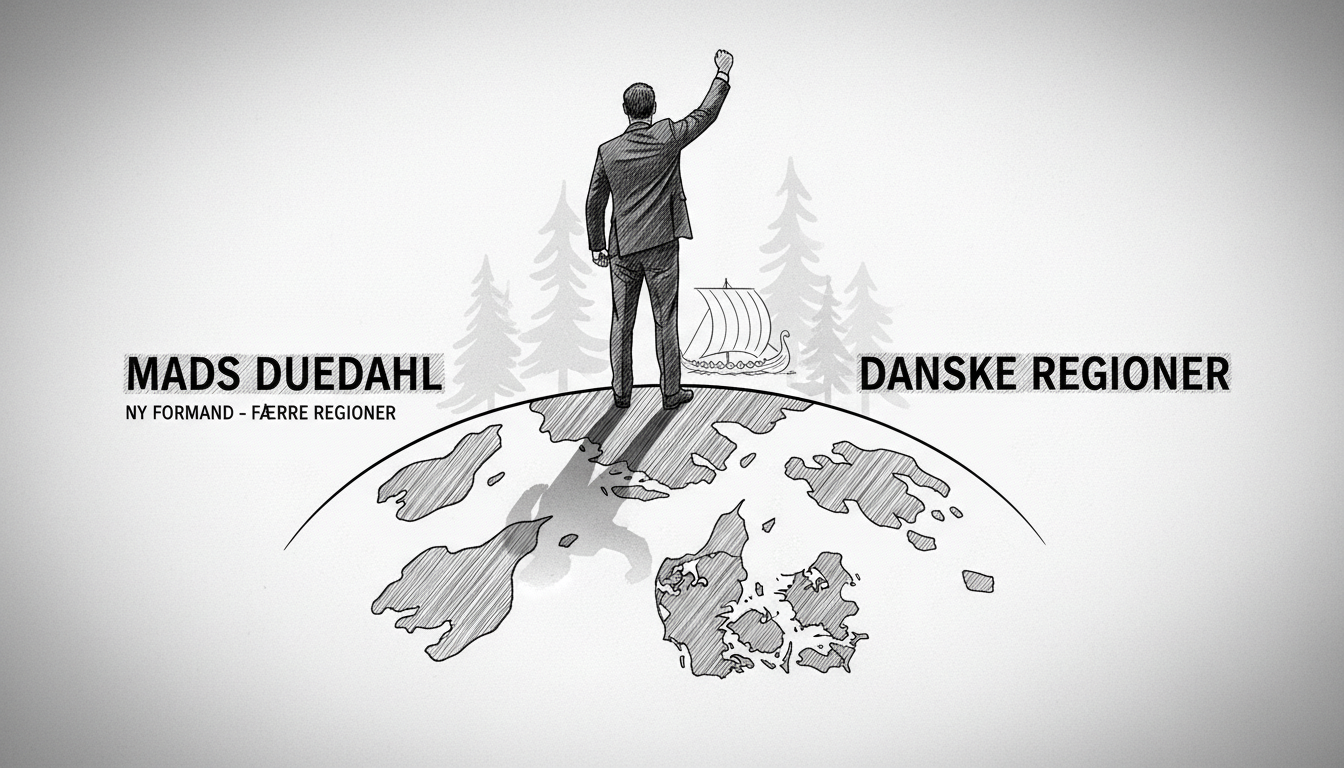Mads Duedahl from the Liberal Party has been elected as the new chairman of Danish Regions, the influential organization representing Denmark's regional governments. The North Denmark Regional Council chairman secured the position after a broad political coalition backed his candidacy. This leadership change follows Tuesday's regional elections that shifted power dynamics across Denmark's local governments.
Duedahl replaces Anders Kühnau from the Social Democrats, who lost his position as regional council chairman in Central Denmark Region. The election results marked a significant political shift, with the Liberal Party now holding three of the four regional chairman positions. Before the vote, the Social Democrats maintained majority control with three regional chairs compared to the Liberals' two.
A substantial political alliance supported Duedahl's election. The coalition includes the Liberal Party, Conservative People's Party, Danish People's Party, Liberal Alliance, Denmark Democrats, and Social Liberal Party. This broad support indicates strong cross-party backing for his leadership.
Duedahl will officially assume his new role when elected at Danish Regions' political summit in March. He brings experience from his current position as chairman of North Denmark Regional Council, a role he has held since 2022. In Tuesday's regional election, he received 35,683 personal votes and helped secure a 1.8 percentage point increase for the Liberal Party in his region.
The new chairman faces immediate challenges implementing Denmark's major healthcare reform. Duedahl acknowledged the task ahead, stating in a press release that regions are actively preparing and implementing what he called a very large and ambitious reform. He emphasized the need for strong collaboration with all healthcare stakeholders and between regions.
This healthcare restructuring will reduce Denmark's regions from five to four starting in 2027. The consolidation represents one of the most substantial changes to Danish regional governance in recent years. Duedahl's election positions him to lead this transformation during a critical period.
The regional elections produced other leadership changes across Denmark. In Central Denmark Region, the Liberal Party's Anders G. Christensen was elected as the new regional council chairman. Meanwhile, party colleague Bo Libergren maintained power in Southern Denmark Region. Current Capital Region chairman Lars Gaardhøj from the Social Democrats was elected to lead the upcoming Eastern Denmark Region.
As chairman of Danish Regions, Duedahl will carry significant responsibility for negotiating regional economies with the national government. His role becomes particularly crucial during the healthcare reform implementation, where funding and resource allocation will determine the success of the regional consolidation. The position traditionally involves substantial influence over Denmark's decentralized healthcare system and regional development policies.
Danish Regions serves as both an interest organization and employer association for the country's regional governments. The organization plays a vital role in coordinating regional interests and representing them in national policy discussions. Duedahl's election signals a potential shift in how regions approach negotiations with the central government, particularly regarding healthcare funding and regional development priorities.
The leadership change comes at a pivotal moment for Danish regional governance. With major structural reforms underway and new political alignments emerging from the recent elections, Duedahl's ability to build consensus across party lines will be tested immediately. His success could determine how smoothly Denmark transitions to its new four-region model and implements the comprehensive healthcare changes.

